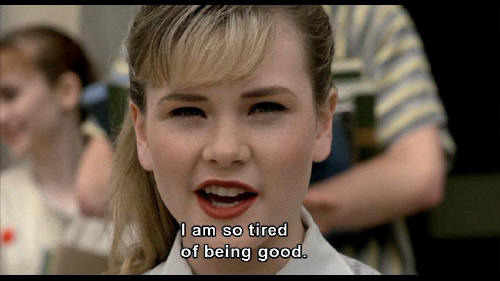The English language is confusing as hell. Take it from someone who’s studied the language and its usage for most of his adult life. Unintuitive spelling, haphazard ordering of words in a sentence, inconsistent conjugation, multiple meanings for words – it’s no wonder why non-native speakers have such difficulty when trying to master it in both its spoken and written forms. Those are just the more straightforward aspects of the language; factor in idioms, colloquialisms, and words that have meanings opposite to themselves (auto-antonyms), and it’s a wonder that native speakers are able to keep track of it all and communicate amongst themselves.
Take the word bad, for example. We all know the primary meaning of bad: the opposite of good. But that’s not the only meaning it’s come to possess in the years since this word entered the English lexicon. According to urbandictionary.com, bad has come to mean “dope, good, tight,” making it an auto-antonym. This alternate meaning was first made widely known to the masses by Michael Jackson through his hit song “Bad,” although people mostly use it nowadays as an adjective to describe a “trendy woman, good-looking or attractive, envied and wanted by many.” It’s this last meaning that’s interesting, because it’s oftentimes used with the word b**ch, as in “She’s such a bad b**ch!” Female celebrities like Rihanna have embraced this phrase as a self-descriptor (part of it’s even in her Instagram username: badgalriri), and for them this phrase denotes a self-respecting, strong woman who is independent, attractive and successful. This can be problematic because, although the person using this phrase is trying to replace the derogatory meaning of the word b**ch with one that signifies power, she is still working within the framework of historical and patriarchal oppression. Calling a woman a b**ch has been the go-to method for a man to belittle a woman and make her feel inferior since time immemorial. This historical usage and the baggage that comes with it in regards to the relationship between the sexes do not simply disappear because one puts a qualifying adjective in front of the word. By perpetuating and promoting the use of phrases like this one, even in an effort for reclamation, sexist hierarchies continue to be kept in place.
Yet this is not the only alternate meaning bad has come to possess. Looking up the entry for bad in the Oxford English Dictionary reveals that this word also means, since at least the early ‘80s, “impressively tough, uncompromising, or combative,” tough and combative being the key words. Everyone’s seen or at least heard of Oxygen’s show Bad Girls Club, in which women from all walks of life experiencing all kinds of behavioral and social problems are put into a house for three months in order to duke it out. Shows like Bad Girls Club capitalize on and exacerbate the perceived links between physical violence, emotional toughness and respect. For the women who participate on this show as housemates, gaining the respect of their peers goes hand in hand with bravado and violence. They enter into physical altercations at the drop of a hat, oftentimes bypassing verbal communication altogether (unless it’s to cuss each other out in ways that would make the meanest sailors proud) in order to jump straight into an all-out nail-scratching, hair-pulling brawl. The participants of Bad Girls Club have been known to refer to themselves as bad b**ches as well, going one step further and conflating femininity – what it means to be a woman – with physical violence. This is problematic in its own way because it glorifies aggression and implies that women should throw their fists first and ask questions later. This is not a message anyone should be sending, regardless of ideas about toughness.
When exactly did people start becoming obsessed with being bad, and how did it become a good thing? Is it a social gesture arising out of subversion, allowing people to act in ways opposite to those that are expected of them, much in the same way that bad has come to mean anything but? And why do the celebrities and TV shows featuring those who represent themselves as bad b**ches hold such fascination for us viewers? There don’t seem to be answers to these questions, at least not ones that can be discovered definitely. We don’t, however, need answers to feel the negative effects of this phenomenon.
Maybe A$AP Rocky was right. Maybe loving bad b**ches is our f***ing problem.

















